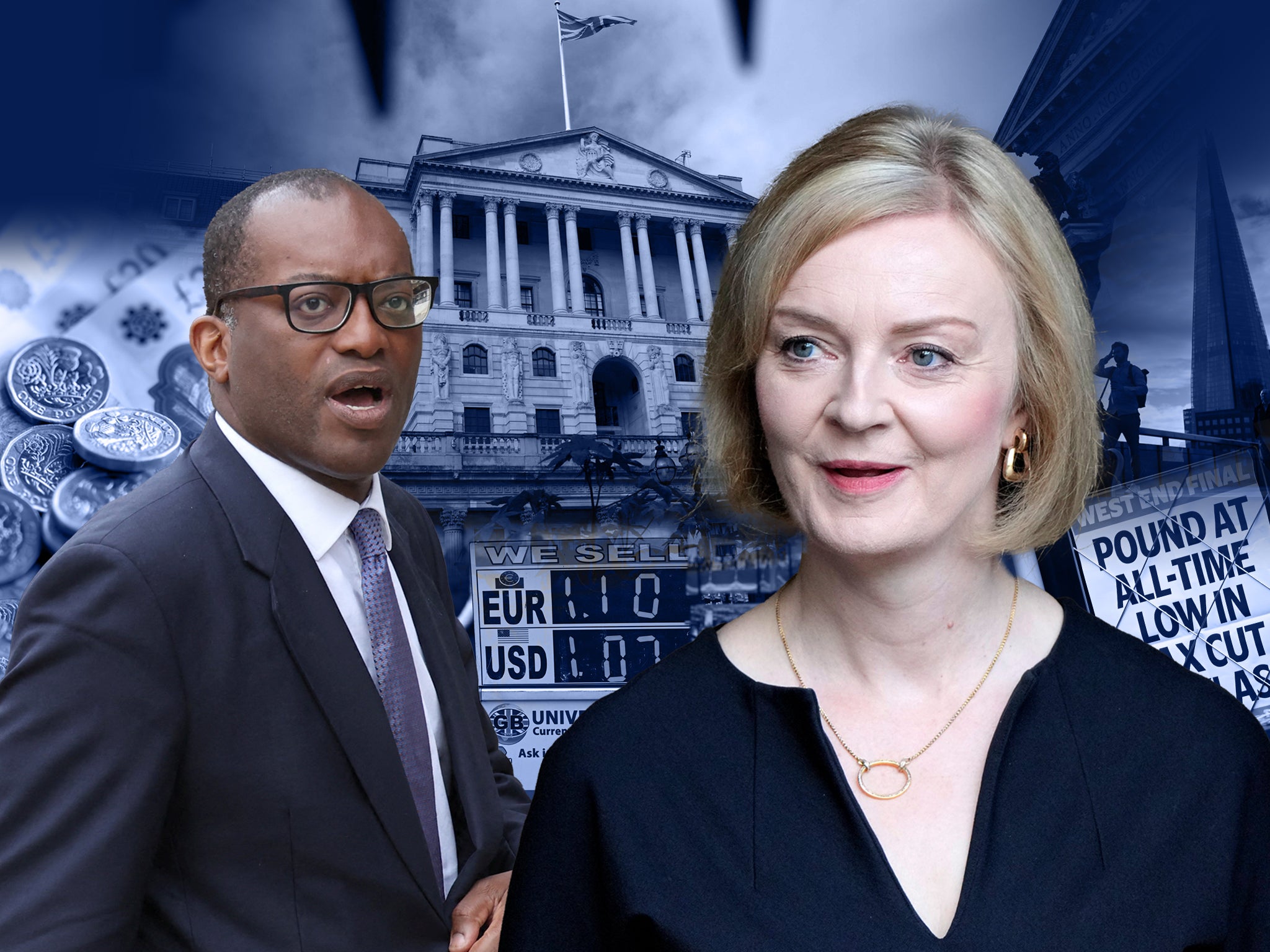
UK prime minister Liz Truss has emerged from hiding to defend her administration’s tax-slashing “mini-Budget” after a week of market turmoil.
In the last three days, the pound sunk to an all-time low against the US dollar, the IMF joined the chorus of criticism bringing together bankers, economists and politicians, and the Bank of England (BoE) was forced to intervene to reassure international currency markets.
Ms Truss insisted on Thursday that chancellor Kwasi Kwarteng’s uncosted giveaway mini-Budget, widely seen to favour the rich and rely too heavily on “reckless” borrowing, would ultimately drive growth as intended and put the British economy on a “better trajectory” that would enable it to escape its current cost of living crisis.
Whether her government will be given the time it would like to realise its ambitions remains to be seen. The growing storm is already hitting the electorate, with high street lenders withdrawing thousands of mortgage offers in fear that the BoE will soon raise interest rates again.
Now, defined-benefit (DB) pension schemes are dumping government bonds (or gilts) en masse, wiping billions of pounds off the stock market value of Britain’s biggest retirement funds.
These DB packages pay pensioners a fixed annual amount, often a proportion of the final salary they earned as employees, and typically invest around half of their assets in gilts in order to pay pension liabilities for decades into the future.
They usually hedge their positions through gilt derivatives managed by liability-driven investment (LDI) funds, limiting their exposure to market volatility.
But in the event that bond yields rise too dramatically or too suddenly, as they have this week, DB pension schemes find themselves needing to provide more collateral to the LDI funds as their positions become loss-making, meaning they are paying out more money than they are accumulating.
That unexpected need for cash is one factor explaining the mass gilt sell-off, another is that some schemes were kicked out of their derivatives positions because they could not pay up on time, thus moving to divest themselves of the bonds to avoid being exposed to further sharp moves.
Responding to this emerging crisis on Wednesday, the BoE said it would intervene to buy up long-dated government bonds at an “urgent pace” to calm the gilt sector.
“Were dysfunction in this market to continue or worsen, there would be a material risk to UK financial stability,” the institution said in its statement.
“This would lead to an unwarranted tightening of financing conditions and a reduction of the flow of credit to the real economy.

“In line with its financial stability objective, the Bank of England stands ready to restore market functioning and reduce any risks from contagion to credit conditions for UK households and businesses.”
The Bank’s strategy will see it invest around £5bn a day in buying up state debt until 14 October, a bailout programme costing around £65bn all in.
It will also temporarily suspend plans to offload another £80bn of gilts held on its balance sheet in the hope of winding up the cost of its earlier quantitative easing measures.
A number of major LDI fund managers including BlackRock, Legal & General, Columbia Threadneedle, Insight Investment and Schroders Columbia Threadneedle subsequently confirmed to the Reuters news agency that they had appealed to the BoE to act.
During an intense round of local radio interviews on Thursday morning, Ms Truss claimed the Treasury was “working very closely” with the BoE, only for BBC Radio Kent presenter Anna Cookson to counter that it was more a case of Threadneedle Street “putting out your fire”.
The PM insisted that market turmoil was a global problem brought about by “the very difficult international situation we face” and that her new administration had taken “decisive action”, rejecting Ms Cookson’s assertion that that simply amounted to “decisive action that people are worried about”.
Additional reporting by agencies







